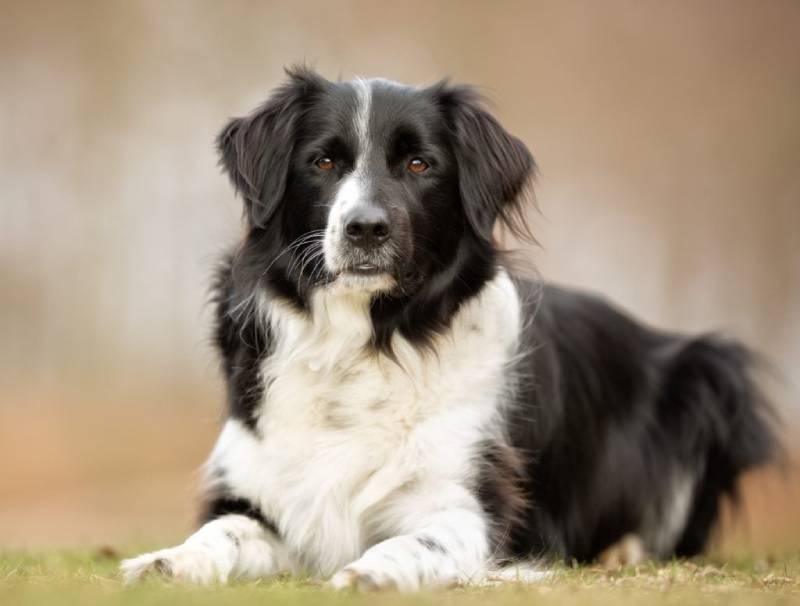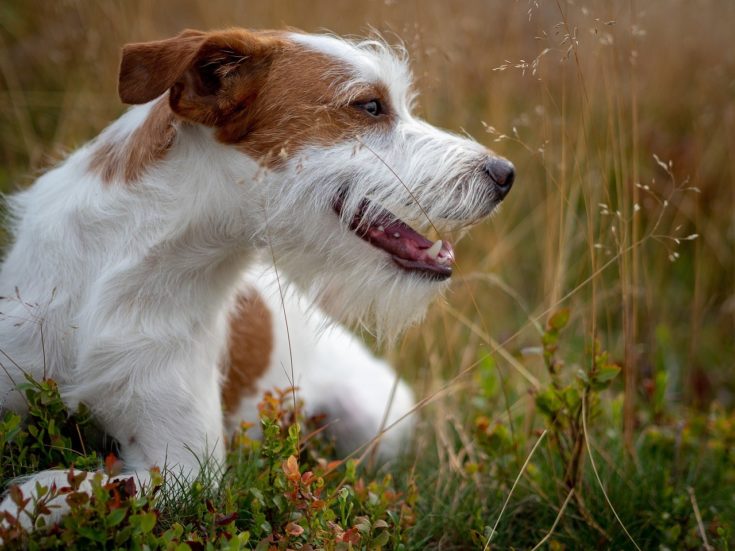When Do Dogs Stop Teething? Vet-Reviewed Timeline & Average Age
Updated on
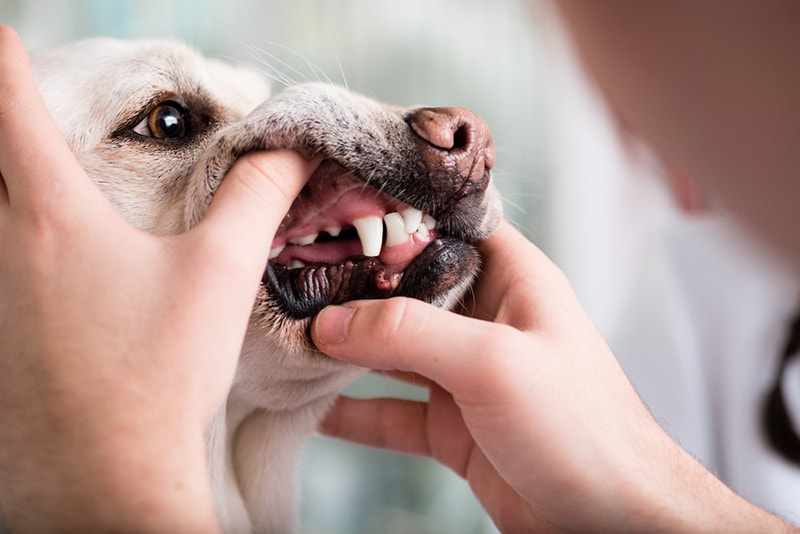
Getting a new puppy in your life is always an exciting time, but as many owners know, caring for a new puppy isn’t always easy because of their 24/7 needs. Little puppies have more similarities to babies than you think, and one of them is their teeth. Teething can be very exhausting for both parties and most of the time, owners ask themselves when it will end.
Don’t worry—you won’t have to wait too long because dogs usually have adult teeth by the time they are 6 months old. However, if you are interested in everything you can expect during this period, read on below for the timeline of dog teething.
The Teething Timeline
1. Birth & First Week of Life
Puppies are born with their eyes closed and dependent on their mother. Also, they are born without teeth and stay like this for the first 2 weeks of their life. The only thing that puppies do in this period is sleep and drink milk—they don’t need their teeth for that.
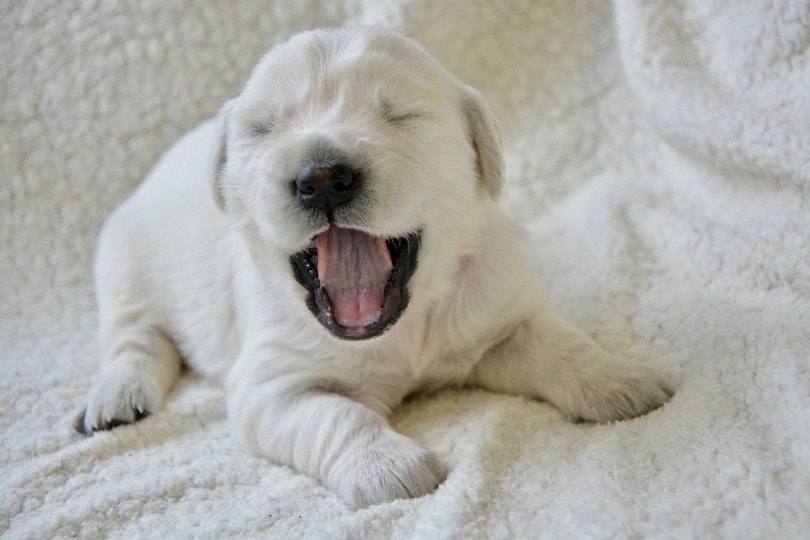
2. 2 to 4 Weeks
This is a period where deciduous teeth, known as baby teeth, start emerging. The canines are the first ones to appear, followed by the incisors (front teeth). Around this time, puppies have already opened their eyes but are still very dependent on their mother. These teeth are very sharp and sometimes referred to as “needle teeth” which can cause discomfort to the mother during feeding. As they gain strength, they start to explore their surroundings, and they start to play with each other and their owner.

3. 5 to 8 Weeks
When puppies are between 5 and 8 weeks old, all 28 of the deciduous teeth have likely grown, including the premolars, meaning that your puppy now has a complete set of baby teeth. This is a time when most owners introduce food to their puppies. You should start with moist, soft foods, and as time progresses, you can introduce them to more solid food. During this period puppies begin to experiment with their teeth which means they bite into everything, from furniture to your hands.
4. 12 to 16 Weeks
At this time, most breeders deliver their dogs to their new homes as they are independent of their mother, which means they are eating on their own and can survive without her. The puppies will begin losing their baby teeth and growing their permanent teeth. Every dog owner knows this can be a painful time in a dog’s life, so you should help them get through it as quickly as possible. This is a difficult period for the owners, too—their teeth are very itchy because of the growth, so they are often very bitty, and their bites can be painful!
You should start introducing them to puppy-safe chew toys and take them to your local veterinarian to make sure everything is developing as it should. Sometimes you don’t see the tooth falling out, which means that the puppy probably accidentally swallowed it. Don’t worry—this is totally harmless.
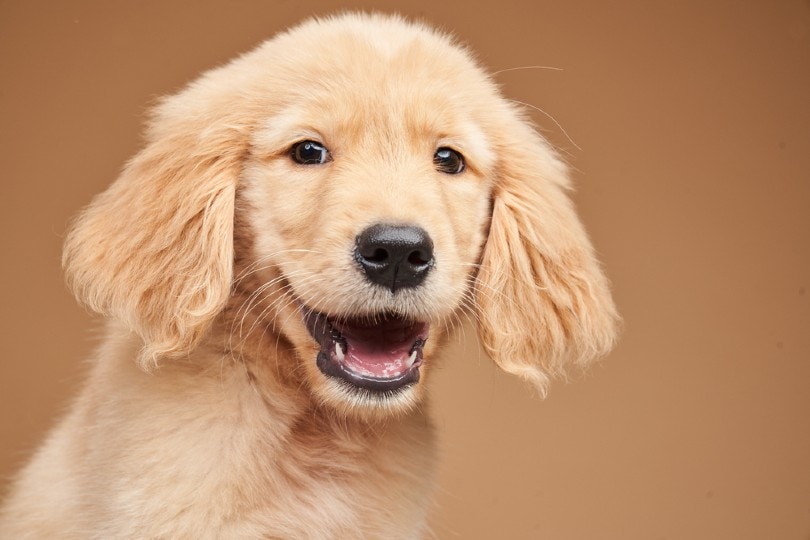
5. 6 Months
When 6 months old, your dog has already gotten used to their new surroundings and the people around them and has grown into a young adult dog. From 6 months old, your dog probably has almost all 42 of their permanent teeth. Permanent teeth in dogs include 4 different types of teeth:
- 12 Incisors
- 4 Canines
- 16 Premolars
- 10 Molars
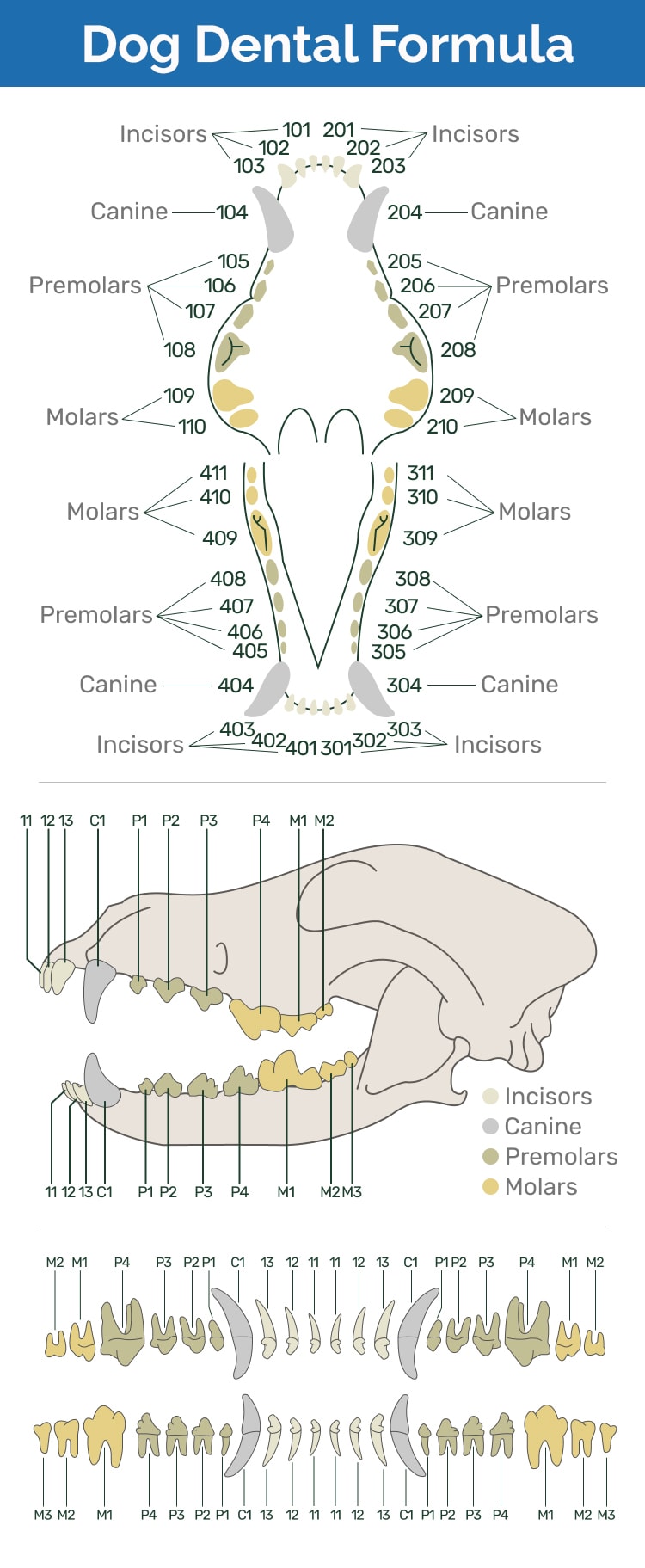
All of these teeth are perfectly designed for biting, crushing, and tearing food. While developing, a permanent tooth will typically push the root of the deciduous tooth so much that they eventually fall out. But there are instances where that doesn’t happen, and both permanent and deciduous teeth stay in the mouth. These situations may require surgical removal of the retained deciduous tooth because it can cause problems. While you can’t avoid these types of situations, you should frequently open your dog’s mouth and see if everything is developing properly, and if you see anything unusual, you should take your dog to the veterinarian as soon as possible.
Keeping Your Dog’s Teeth Healthy
As with humans, keeping your dog’s teeth clean and healthy is vital for their overall well-being. When cleaning your puppy’s teeth, you should do it with a finger brush, and later when the dog is older, you can use a toothbrush and toothpaste, but only if it’s formulated for a dog because human toothpaste can cause problems with your dog’s stomach if they eat it or it can even be toxic if it contains xylitol. Also, you will need to do this very gently because their teeth and gums are very delicate. You should repeat this process daily.
It is important to start doing this from a young age to get your dog used to the idea and the feeling of a toothbrush inside their mouth. Don’t stop giving your dog chewing toys and healthy edibles when they get their permanent teeth because they still like to chew, and it’s a natural activity for them. However, they are not a substitute for toothbrushing.
Daily toothbrushing and regular vet checks are the most important factors in tooth care. You may also consider giving your dog dental food, which is formulated to clean your dog’s teeth while it is chewed. These diets can help reduce the accumulation of plaque more than regular dry food. But you should consult with your veterinarian before introducing your dog to dental food.
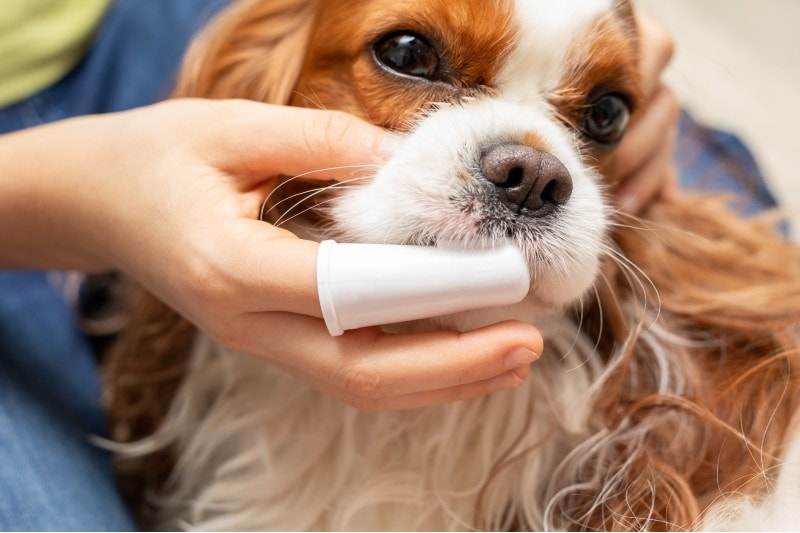
Final Thoughts
Caring for a puppy can sometimes be exhausting, but teething is an important part of your dog’s growth. With that said, your role as a responsible owner is to do everything you can to take good care of them during this process and after they develop their permanent teeth. We hope this article helped you understand that this process is normal and also gave you some tips on taking the best care of your puppy.
Featured Image Credit: Kzenon, Shutterstock





